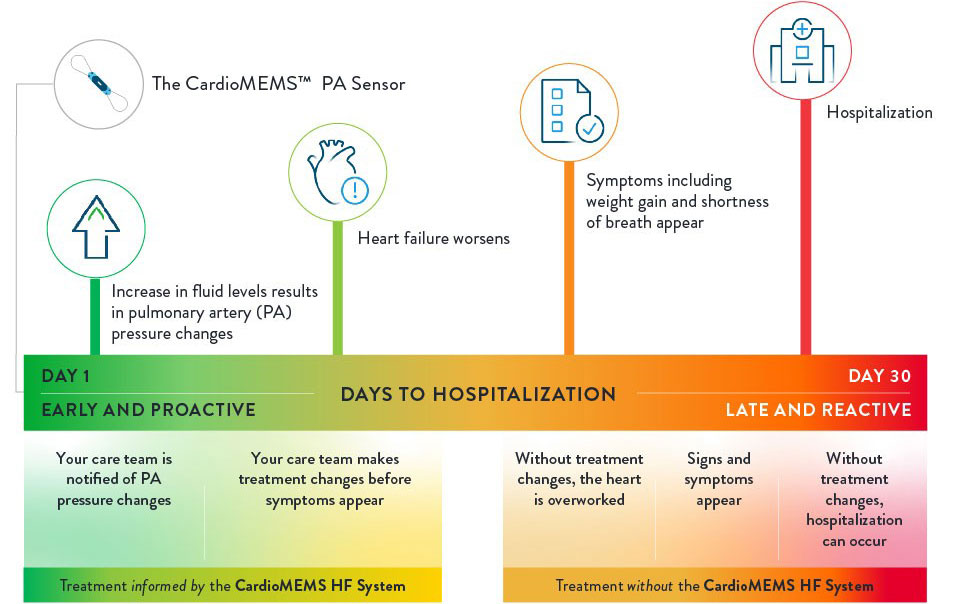Talk to Someone Who Has the CardioMEMS HF System
To get a first-hand perspective about the benefits of being remotely monitored, you can speak one-on-one with a patient whose life has improved by using the CardioMEMS HF System.
Heart failure is a condition where the heart gets weaker over time. You usually don’t know that it is getting worse until symptoms start, but there is a way for your care team to identify when your heart failure is getting worse, even before you start to get sick.
When your heart is too weak to pump effectively, fluid builds up and this causes pulmonary artery (PA) pressure to increase, which is an early sign that your heart failure is getting worse. The CardioMEMS™ HF System can help your care team monitor your PA pressure. Based on data from the system, they can make adjustments to your medications or recommend lifestyle changes – even before you notice symptoms like shortness of breath, swelling or weight gain.
The CardioMEMS HF System is a clinically proven PA pressure monitor that reduces heart failure hospitalizations and improves quality of life.1 This is important because each time you’re hospitalized for heart failure, your heart is damaged. That damage may contribute to your heart failure getting worse.2

Watch a video about how the CardioMEMS HF System works




MAT-2100733 v9.0